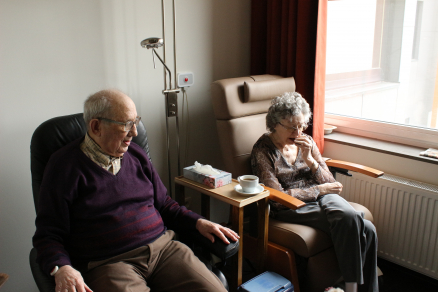What about monitoring dementia progression?
Due to the progressive nature of dementia taking some years, the regular review of dementia progression may be mixed, depending on what sort of dementia diagnosis the patient has and what access to community services they may have, in the country.
Routine appointments
The GP may arrange to have regular review appointments with the dementia patient, depending on the type of dementia they have been diagnosed with and your physical health. In particular, there may be regular check ups required, if you have been prescribed medication to deal with symptoms or side effects from a particular dementia disease.
You might hear dementia described in three stages, early, middle and late, or you may come across health care professionals who refer to the 7 stages of dementia. This is known to be a more accurate determination of the person’s symptoms are rated against what is called “the Reisberg scale”. It helps healthcare professionals to identify what stage of dementia the patient is at and to map the disease progression.
Cognitive assessments may be carried out, following diagnosis to identify how the dementia patient is progressing through there illness and to identify the rate of decline of memory. However, as some dementia diseases take years of progressive deterioration, these tests won’t necessarily be carried out monthly, it is more likely that they will be checked on a bi-annual or annual basis. This may not be carried out at the GP surgery but at a specialist local clinic, or community services for dementia patients and in some cases, it may not be carried out at all.
There may also be follow up scans such as MRI or CT to see how far the disease has progressed. These scans can give a clear picture of the rate of damage to various parts of the brain and might identify any medication which can alleviate problems. Again these may not necessarily happen, it depends on the patient and where they live and what type of dementia they have been diagnosed with also. As the scans would be identified as being routine, rather than to diagnose anything in particular, they would appear lower in priority in already overstretched NHS hospitals.
How can you look after a dementia patient?
It is important is that the dementia patient receives the right support within their own home, to avoid falls or dehydration in hot weather for example. Given that there are limited community care providers, dementia patients are often left to fend for themselves and because there is no regular check up in place things can be missed.
As a dementia patient progresses, their cognitive functions will become impaired, so things that they used to carry out with relative ease, are now much more difficult. Even something simple like knowing when you are too hot in warmer weather and wearing the right clothing can be difficult for a dementia patient to recognise what they should be doing.
If the dementia patient lives alone, make regular visits to check on them. The house needs to be made safe and things like trip hazards should be identified. Ideally the property should be decluttered (but not clinical) and adequate lighting installed, so that the dementia patient can see properly. We cover more details on keeping the home safe, here.
In warm weather, keep water accessible and close to the patient and if you can go visit them to make sure they are spending time in shaded areas. If it is not possible for you to be there, ask a neighbour or family friend to help, or find them a daily carer, who can go visit the dementia patient on a regular basis. This also helps to ensure that the dementia patient is not completely isolated and alone.
Summary
Be prepared that whilst you may receive help from council services or the GP, identifying care and supporting dementia patients in their needs often falls to the family, or partner. The disease is progressive and decline can occur over many years, so dementia care is not always prioritised by cash strapped services. Therefore, you may find that you need to find out a lot of information by yourself. We cover a range of articles on our site, which you may find useful to get more information about the patient’s needs throughout their journey.
If you have any concerns about the dementia patient health, then it goes without saying that you should discuss these with their GP. They may not be able to discuss the patients records with you, if you are not identified as being able to have access, but you can still raise any concerns with them. As with before the dementia diagnosis, keep a diary of any events of anything in terms of their behaviour that you think might be worth flagging with the GP.
On the whole, the dementia patients progression and care is generally left to family or relatives to see to and if the patient lives alone, or has no family, then their care can often become overlooked. Dementia patients deterioration varies from patient to patient and therefore, the care tends to be reactive, rather than proactive, as it may take some years for a dementia patient’s cognitive abilities to decline, as opposed to months. However, because of this, it is quite possible for a dementia patient to live in their own home, with the right type of care support and a proper assessment of their home to identify the possible risks - which are not always obvious.
Bestsellers under £50





